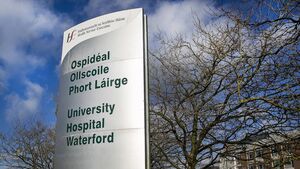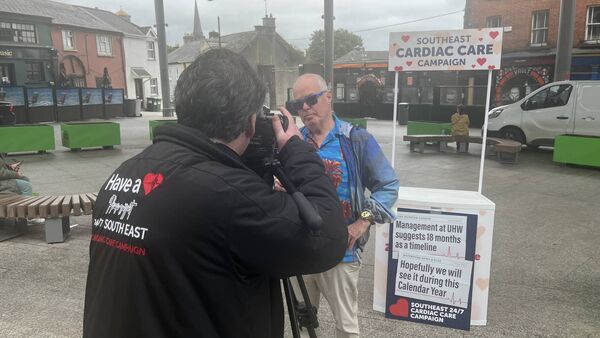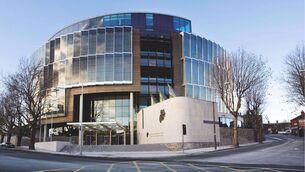Six months later: What is the progress on 24/7 cardiac care?

University Hospital Waterford
It has been six months since cabinet approval for the implementation of 24/7 cardiac care at University Hospital Waterford was announced.
The approval ringfenced €611,000 to facilitate the recruitment of additional staff to commence the expansion of cardiac services at the hospital.
A timeline of approximately six months was provided to the Waterford News & Star in late June for this recruitment process to be completed.
However, concerns are being raised regarding the amount of time the process is taking to complete, and the lack of transparency on how the process is progressing.
Waterford TD David Cullinane asked Taoiseach Micheál Martin this week when full 24/7 cardiac services will be in place in Waterford and the South East.
The Taoiseach responded: “A lot of progress has been made on this agenda. I can see that all of the Deputies in Waterford work together and I appreciate that. We will keep the pressure on to get this done in a reasonable timeline.”
In a statement circulated after the interaction, Deputy Cullinane expressed frustration at the Taoiseach’s “vague response”.
“The Government has finally given a commitment to 24/7 emergency cardiac services at UHW, but six months later there is still no evidence of proper planning," he said.
“When I asked the Taoiseach yesterday for timelines and workforce details, his response was vague and without detail.
“It is hugely concerning and deeply frustrating.”
Deputy Cullinane added that he fears “we will never see it delivered, or that it will take many years to deliver.”
“This is quite literally a matter of life and death,” he added.
Pressure was mounted further this week as campaigners took to the streets of Waterford to continue their plea for the service's immediate implementation.

“There's all sorts of timelines and suggestions, but nothing feels concrete," Konor Halpin of the South East Cardiac Care Campaign told the Waterford News & Star.
"Until 24/7 care is implemented in the South East, half a million people will continue to have a terrible fear that they may have to take a trip to Cork if they get a heart attack. That is over two hours away and the chances of people making it to Cork are very slim because when you have a cardiac arrest the first few minutes are vital to get stabilised.
"The concern and anxiety associated with that is just horrendous and we shouldn't be dealing with it at this stage. People are going to bed extremely worried.
"If we don't get to 24/7 soon, we're going to have more fatalities. Apartheid health cover has continued to prevail in the South East."






